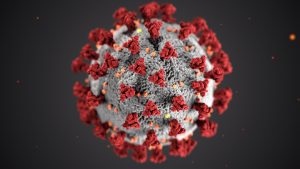Sen. Ed Markey (D-MA) said any bailout needs to be conditional.
Airlines for America, a special interest group representing the largest U.S.-based carriers, has asked the federal government for a $50 billion bailout to avoid coronavirus-related bankruptcies. Without high-level intervention and significant economic stimulation, carriers say they could run out of money within the next several months.
But the airlines’ request isn’t without controversy. Even as ticket sales suffer and carriers cut back flights around the world, critics have noted the industry’s proclivity for burning money. An investigation by The Guardian, for instance, found that the United States’ five largest airlines paid shareholders about $45 billion in the past five years alone.
Delta, American Airlines, United, Alaska, and Southwest spent $44.9 billion “on share purchases and dividends” in the last half-decade. On top of that, another $750 million has been diverted to executives and other c-level management.
Separate data—collected by Bloomberg and reprinted, in part, by The Guardian—suggests the same five airlines have spent 96% of “their free cashflow buying back their own shares.”

Critics—including aviation workers—are asking Congress not to provide an unconditional bailout. Sara Nelson, president of the Association of Flight Attendants, told The Guardian she wants any stimulus package to come with “significant conditions” that prevent companies from “[enriching] shareholders or [padding] executive bonusses.”
“We have told Congress that any stimulus funds for the aviation industry must come with strict rules. That includes requiring employees across aviation to maintain pay and benefits for every worker; no taxpayer money for CEO bonuses, stock buybacks or dividends; no breaking contracts through bankruptcy; and no federal funds for airlines that are fighting their workers’ efforts to join a union,” Nelson said.
The Boston Globe notes that the Trump administration has, at the very least, seemed receptive to the airlines’ request for funds; it’s also publicly pondered handouts for hoteliers and the imperiled cruise ship industry.
The Globe, just like Nelson, suggests “stringent conditions to justify exceptional treatment on the taxpayer’s dime.” For instance, the Globe advocates that a bailout require recipient airlines to reconfigure business practices, insofar as they relate to employee rights, customer service and environmental protection.
Sen. Edward Markey, a Massachusetts Democrat, said he and his colleagues aren’t inclined to sign off on a “blank check” for airlines. He, too, has said that airlines will have to make changes to receive special treatment. Markey proposed, among other things, a ban on unfair change and cancellation fees and labor protections for airline workers.
Sen. Jack Reed (D-RI), a member of the Appropriations Committee, echoed Markey’s sentiment, saying airlines should be subject to some of the same restrictions that accompanied the 2008 bailout for big banks. Reed told POLITICO he’d also like to see the federal government take at least partial control of some big carriers, thereby ensuring that post-pandemic investments benefit consumers.
“If we do anything like that, it would have to be done on a business-like basis, which would be demanding preferred shares in the company, so when they recover, taxpayers will get the benefit of the investment,” Reed said. “We have restrictions on share buybacks, on dividends, on executive pay, we make sure their workforce is treated fairly, that they’re not victims of this after use of our resources—similar to some of the things we did with the banks.”
Sources
Airline bailout faces a giant hurdle: Limits on exec bonuses and stock buybacks
Airline bailout shouldn’t be cleared for takeoff
US airlines pushing for massive bailout gave $45bn to shareholders in five years


Join the conversation!